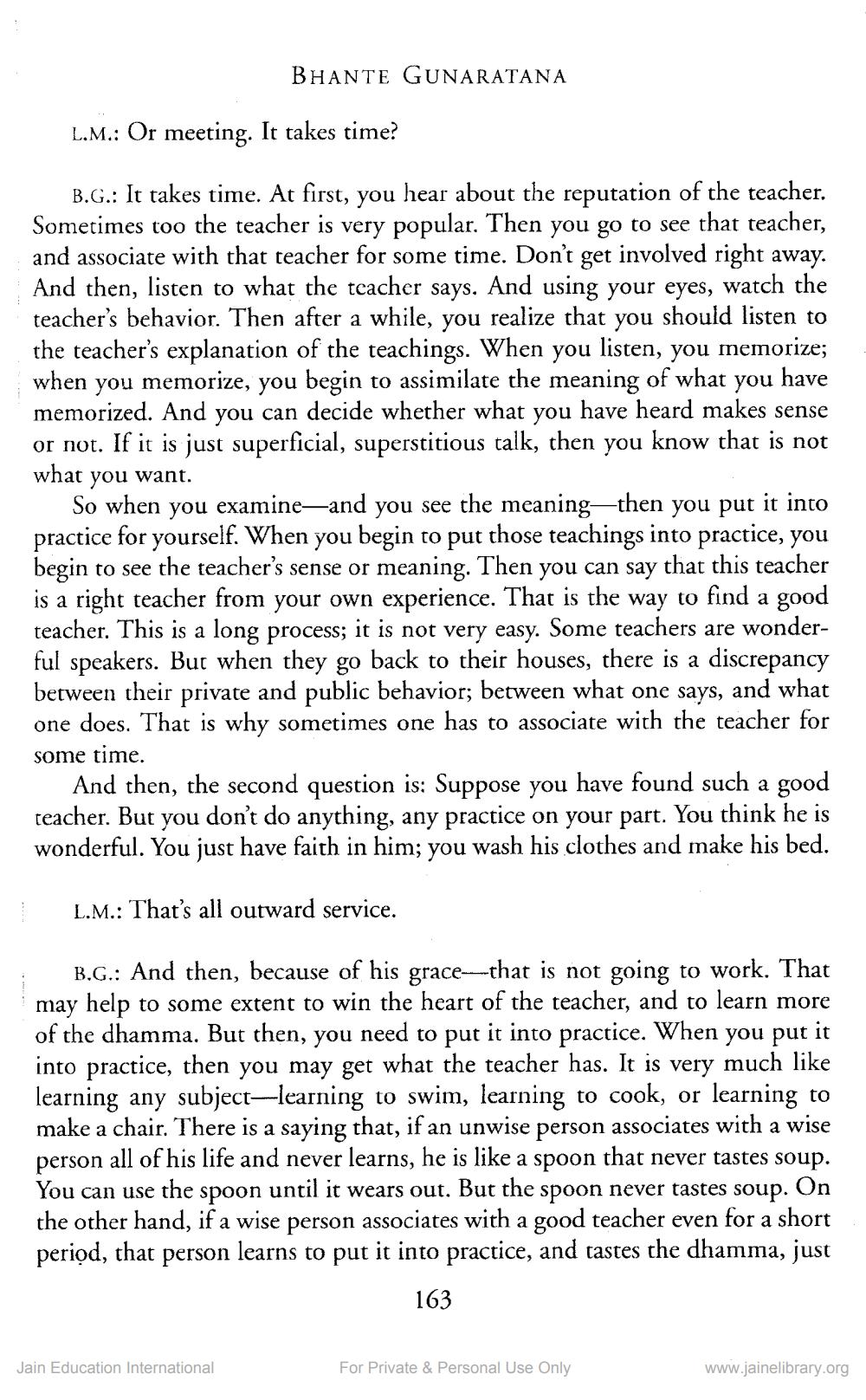________________
BHANTE GUNARATANA
L.M.: Or meeting. It takes time?
B.G.: It takes time. At first, you hear about the reputation of the teacher. Sometimes too the teacher is very popular. Then you go to see that teacher, and associate with that teacher for some time. Don't get involved right away. And then, listen to what the teacher says. And using your eyes, watch the teacher's behavior. Then after a while, you realize that you should listen to the teacher's explanation of the teachings. When you listen, you memorize; when you memorize, you begin to assimilate the meaning of what you have memorized. And you can decide whether what you have heard makes sense or not. If it is just superficial, superstitious talk, then you know that is not what you want.
So when you examine—and you see the meaning-then you put it into practice for yourself. When you begin to put those teachings into practice, you begin to see the teacher's sense or meaning. Then you can say that this teacher is a right teacher from your own experience. That is the way to find a good teacher. This is a long process; it is not very easy. Some teachers are wonderful speakers. But when they go back to their houses, there is a discrepancy between their private and public behavior; between what one says, and what one does. That is why sometimes one has to associate with the teacher for some time.
And then, the second question is: Suppose you have found such a good teacher. But you don't do anything, any practice on your part. You think he is wonderful. You just have faith in him; you wash his clothes and make his bed.
L.M.: That's all outward service.
B.G.: And then, because of his grace-that is not going to work. That may help to some extent to win the heart of the teacher, and to learn more of the dhamma. But then, you need to put it into practice. When you put it into practice, then you may get what the teacher has. It is very much like learning any subject-learning to swim, learning to cook, or learning to make a chair. There is a saying that, if an unwise person associates with a wise person all of his life and never learns, he is like a spoon that never tastes soup. You can use the spoon until it wears out. But the spoon never tastes soup. On the other hand, if a wise person associates with a good teacher even for a short period, that person learns to put it into practice, and tastes the dhamma, just
163
Jain Education International
For Private & Personal Use Only
www.jainelibrary.org




